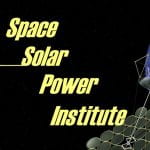 Here is a summary of the 2018 design project for ECE 4370/1: Antenna Engineering (and Lab). Students must design microwave energy-harvesting vehicles and antennas capable of self-propelling down a long track. Costs for the project are provided by the space solar power institute.
Here is a summary of the 2018 design project for ECE 4370/1: Antenna Engineering (and Lab). Students must design microwave energy-harvesting vehicles and antennas capable of self-propelling down a long track. Costs for the project are provided by the space solar power institute.
Overview
The goal of this project is to make a high-gain, lightweight antenna that allows for microwave (5.8 GHz) energy harvesting and conversion to mechanical energy. The antenna should have a targeted band of operation of the unlicensed ISM band from 5.725 GHz to 5.850 GHz. Your team should maximize peak gain and minimize weight for this application.
Competition
Your team’s antenna will receive a competitive rankings. The first rank, relative to your classmates’ antennas, is based on how well your antenna maximizes the following parameter: [Peak Linear Gain]/[Weight]^0.5. The second rank, also relative to your classmates’ antennas, is the total distance that the antenna can propel a small DC motor, connected to energy-harvesting circuitry and powered by a continuous wave 5.8 GHz magnetron. The final project rank will be based on an average of the “weigh-in” rank and the “race” rank.
The distance measurement will be made with the following “race” rules:
- All race entrants shall be composed of a) a male SMA-connectorized 5.8 GHz antenna, b) a SMA-connectorized energy-harvesting circuit, c) a DC motor drive unit, and d) a chasis. Your team is free to design and specify these components or simply use the provided energy-harvesting circuitry and small DC motor. Starter kits with low-powered DC motors, Schottky diodes, circuit boards, and capacitors will be available at the Hive for ECE 4370/1 students. Ultimately, your group is free to use all, some, or none of the kit components in the final design.
- The vehicle will be powered by a 5.8 GHz 700 Watt continuous wave magnetron driving a 20 dBi horn antenna, vertically polarized. The center of the horn will be approximately 20 cm from the ground.
- The student team will place the vehicle anywhere in front of the transmit horn, but no closer than 1 meter. When the device is powered up, the total distance traveled by the vehicle is measured. If the distance traveled exceeds the available track distance for multiple antennas, tie-breaks between entrants will be determined by total time taken to reach the end.
- Small dielectric rails will be used along either side of the illuminated race track in order to gently guide the vehicle down the center.
- Students are free to design/add any assisting circuitry that they may find useful for the race. However, all components added must be passive and completely discharged at the starting line. The entire vehicle must be self- contained at the starting line (no grappling hooks and strings).
The official page will be continually updated here.